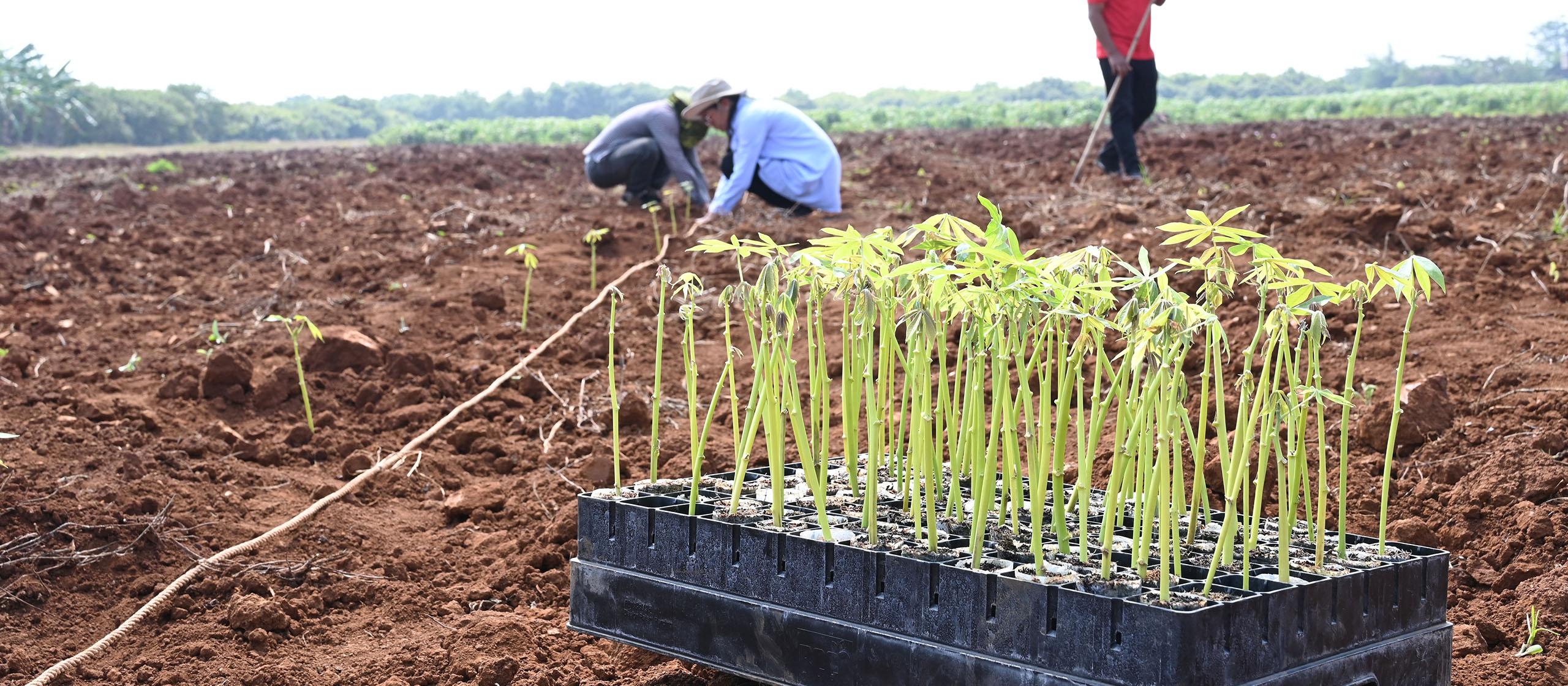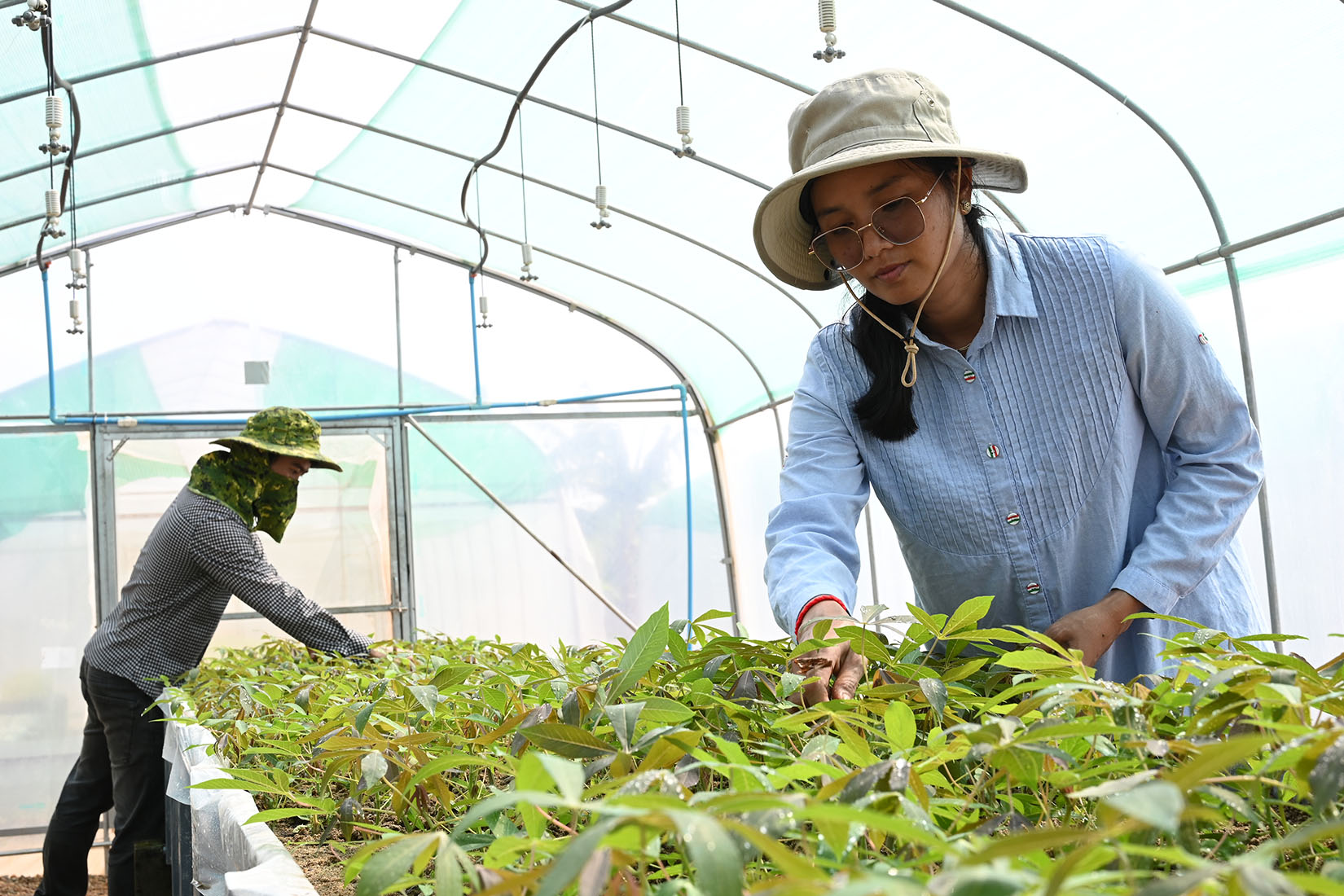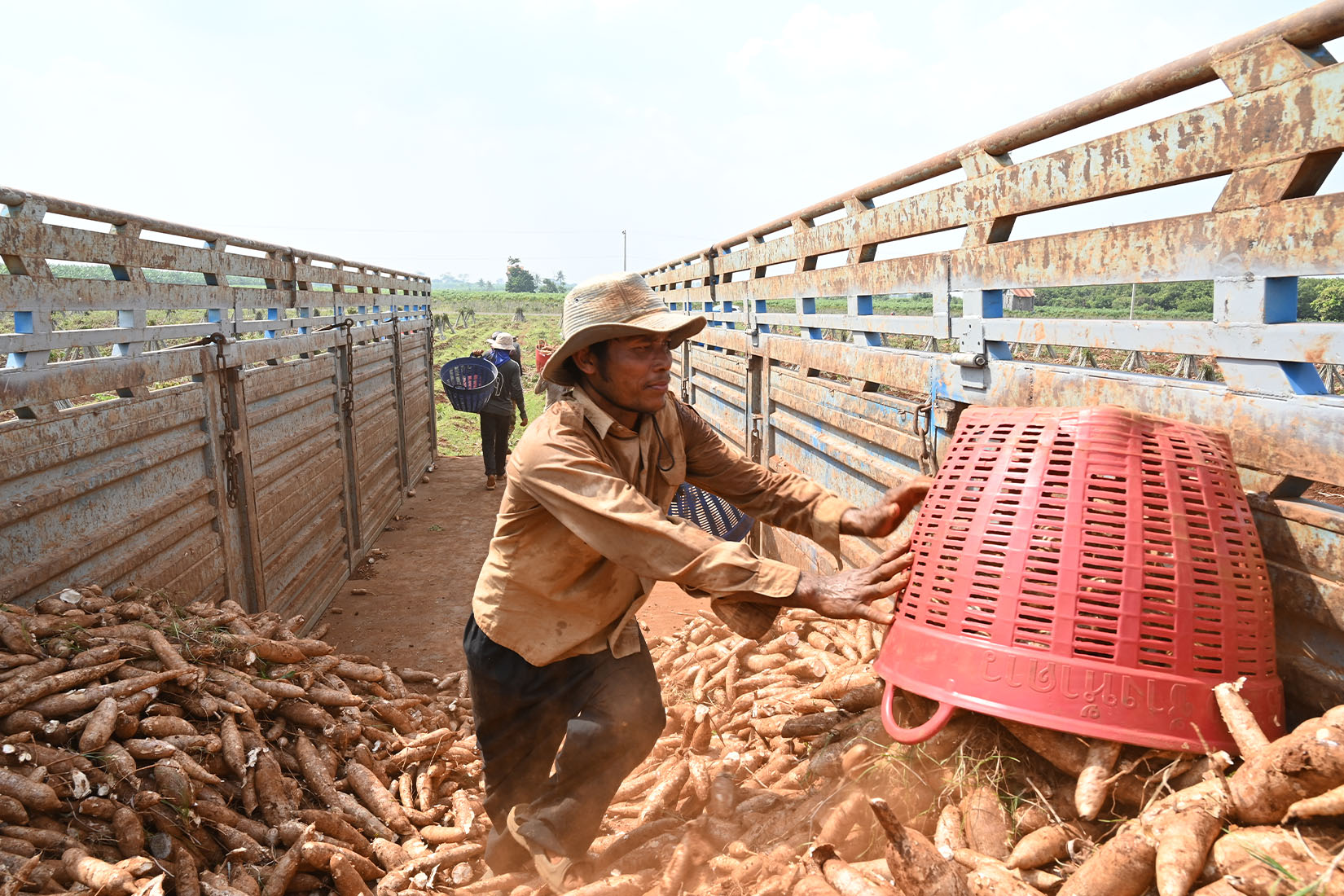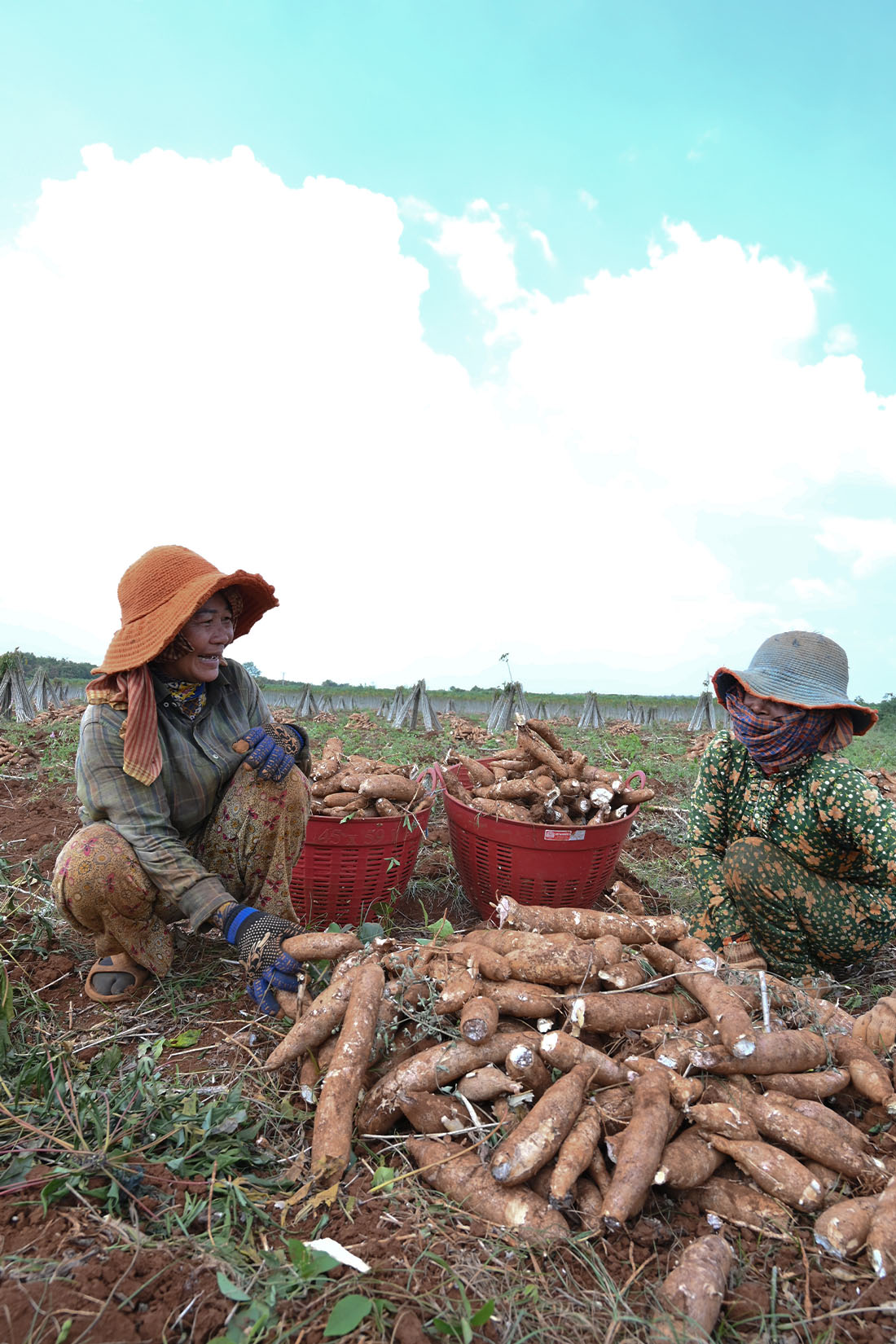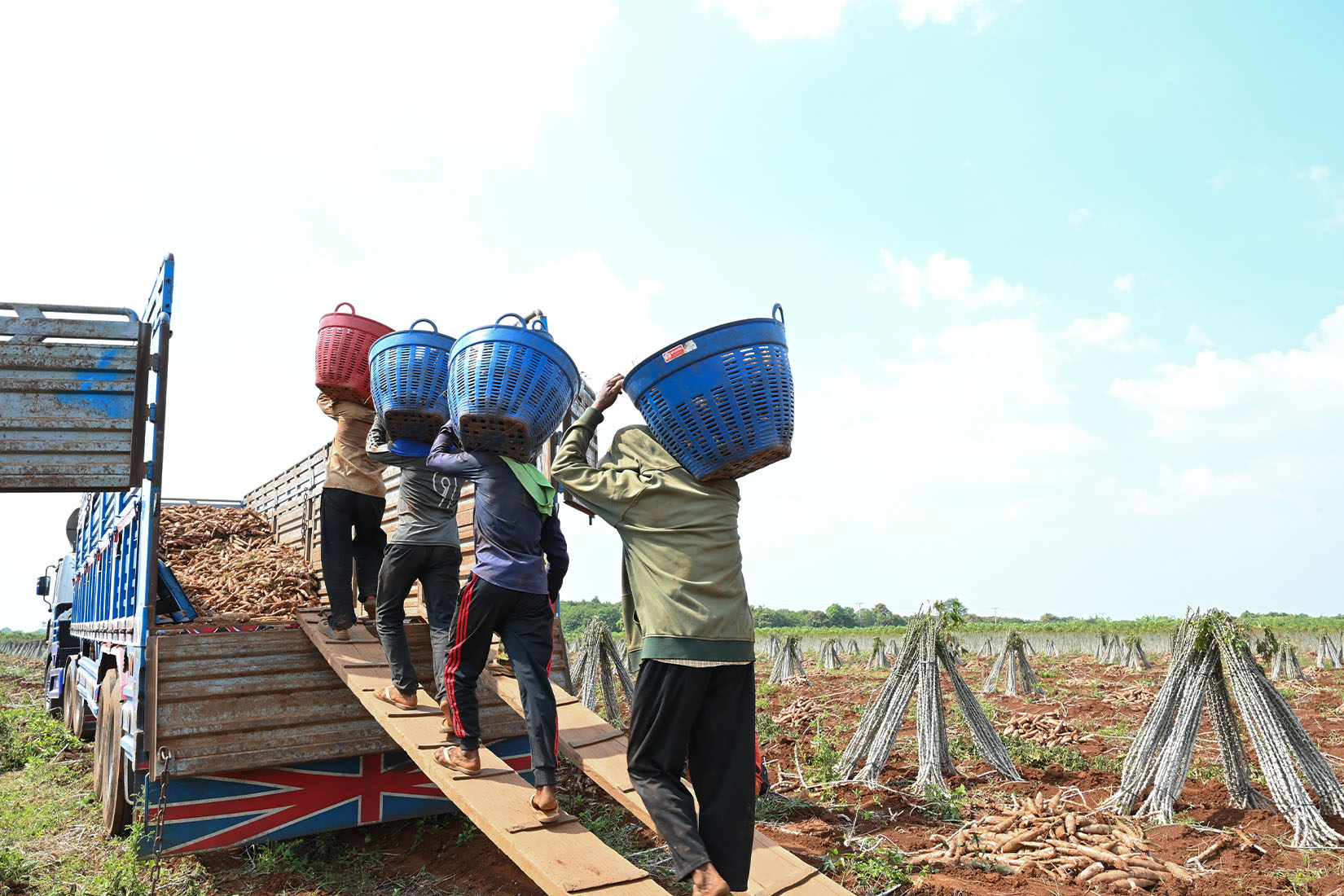Throughout South-East Asia, cassava has become an important crop for both rural livelihoods and economic development, with estimates showing that more than 2 million households are engaged in cassava production. The crop is cultivated to meet the rapidly growing regional and global demand for animal feed, starch-based products, ethanol, and biofuel.
Cassava Mosaic Disease (CMD) presents a significant risk to Cambodia’s cassava industry. If left unchecked, the disease will continue to spread throughout the region, devastating cassava production, the incomes of millions of farmers, and the multibillion-dollar industry.
As an agriculture researcher, Ms Kan Sopha sees this crisis as an opportunity to support farmers. In 2020, Ms Sopha joined a team of local and international researchers and scientists to combat CMD, aiming to halt its spread and introduce disease-resistant varieties.
